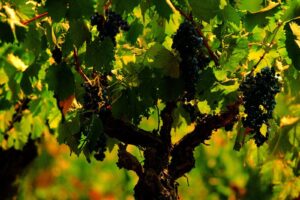
Italian wine’s long standing issues such as rationalizing the valuable, but perhaps too complex system of Italian denominations (more than PDOs and PGIs, while 20 denominations, however, account for over 70% of the market), broadening the borders and diversifying the world markets of an exporting country like Italy, where more than half its turnover is concentrated in 5/6 countries, were reiterated recently in Florence by Lamberto Frescobaldi. Lamberto is the entrepreneur at the helm of the Frescobaldi Group, one of the most important names in Italian wine, and he is also president of the Unione Italiana Vini (UIV). He gave the speech at the opening of the 75th Academic Year of the Italian Academy of Vine and Wine. The Academy is the topmost important Italian association dedicated to viticulture, counting 600 academics including scholars, entrepreneurs and popularizers of the sector. Frescobaldi reiterated his commitment to help the wine world deal with and overcome the challenges it faces.
Today, “the sector is at the center of complex challenges”, Rosario Di Lorenzo, president of the Academy, said, “which affect the production world where the main themes are sustainability, climate change and resistant vines. There are also communication issues to address, beyond those that impact the wine market. For instance, the approach to how young people drink, and the global change in tastes giving preference to alcohol-free wines. These aspects present us with crucial problems that the wine sector must be able to face and overcome”. “The development of Italian wine”, Frescobaldi, who is also an Academic in Vine and Wine, said in his speech,“ Current situations and prospects for the National wine sector”, “must be based on four cornerstones: rationalization, investments, knowledge of the markets, promotion. First of all, it is necessary to thin out the panorama of denominations and adopt rational policies, through mergers, or even where the numbers are really scarce, due to cancellations. Now, only 7 out of around 400 active DOCs and DOCGs bottle more than 500.000 hectoliters and represent more than half of the total volume. Overall, the PDO-PGI system shows unsatisfactory bottled volume rates, compared to the initial claim. Reorganizing would give the sector the possibility of channeling energy and resources into research and promotion, because times are changing at an unsustainable speed in the wine sector”.
Regarding the market, the president of the Italian Wine Union (UIV) continued, “the key to development in Italy over the last two decades has been foreign countries, driven by progressively replacing selling bulk wine on behalf of third parties with exports of packaged wine. One example, for all, is France, our direct competitor, where we have gone from being anonymous bulk producers to producers of medium-high profile wines, and a 120% jump in value compared to an expected decrease in volumes of 70% over the last 20 years. Now, however, the markets”, Frescobaldi concluded, “need a further push. It is necessary to enlarge the too small concentration of outlet markets with the five countries (USA, Germany, UK, Canada and France) that together add up to 62% of Italian exports. We also have to know how to read and interpret the demographic changes that will dictate the evolution of consumption. In the USA, for example, a rapid ethnic change is underway in favor of non-Whites, which will require an extraordinary effort to reposition Made in Italy wine”.
Copyright © 2000/2025
Contatti: info@winenews.it
Seguici anche su Twitter: @WineNewsIt
Seguici anche su Facebook: @winenewsit
Questo articolo è tratto dall'archivio di WineNews - Tutti i diritti riservati - Copyright © 2000/2025